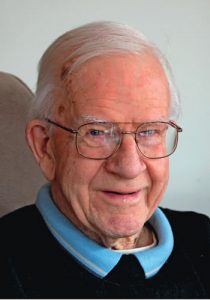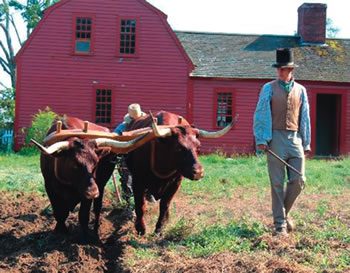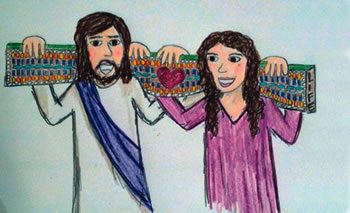Another Invitation from the Lord …

Fr Tony King SM
... for those of us who are heavily burdened
In one of his catechetical instructions recently, Pope Francis spoke about Jesus’ invitation to those of us who experience heavy burdens in life’s journey, an invitation to come to Him. This led me to recall three key moments in my own appreciation and response. We will ‘listen’ to Francis’ words later. Here now is Jesus’ invitation, in Matthew 11.28-30, then my three ‘moments.’
Come to me all you who labour and are heavily burdened and I will give you rest. Take my yoke upon you and learn from me for I am meek and humble of heart and you will find rest for your soul. For my yoke is easy and my burden light.
We experience a certain comfort in the Lord’s words, promising that in the midst of our being burdened, He will give us rest. ‘Rest’ can sound so attractive, it sounds like the opposite of ‘burden’. Burden and rest seem to be two very clear opposites.
To some degree, at one time, that was probably my understanding. What burdens me is like a yoke that I bear. Yet I know that God’s providence is loving, caring. So, real as the yoke is, His love makes it light and gives rest. However, Jesus says “Take up my yoke and learn from me”.
Three incidents led me to better understand Jesus’ words.

Oxen at Old Sturbridge Farm, MA
The first moment was when a friend shared with me a memory that struck her while she was praying. As a 12-year-old girl, she was the eldest and used to help her father with the many tasks on their property. He often worked with bullocks. In her prayer she suddenly ‘saw’ their yoke in the large barn – not single yokes for two animals but one large, double yoke for both. There was burden in her life now, as she prayed, but Jesus was with her; He and she in some real way were yoked together. We know that in the deep reality of the Mystical Body, we are ‘one-d’ with Jesus. We, true children of God, become God’s children only through and in Christ. He desires that we be one together in the burdens that each of us carry.
The second ‘moment’ for me occurred in America where I was studying in Boston. Four of us on the program paid a visit to a place some miles out of Boston. It was called Old Sturbridge Village and was set up like a village of olden times with many of the crafts and skills of that era.
While we four were watching, two oxen (bullocks) with the ‘farmer,’ came out of a large barn and went into a smallish field. The bullocks were yoked together by a single double yoke and set about ploughing the field. The farmer? He stood in one corner of the field, and the bullocks just carried on. He saw our interest and came over to chat with us.
“How do they know what to do?” we asked him. “Sometimes they know by what I say to them; sometimes they know by where I touch them.” The final thing he said was staggering: “Sometimes they know what to do from where they see me standing.”
He went on to say that he could have a bullock that was perfectly in tune with him, as if it were one with him. He would then have to train a companion.
For me, partly because of the course I was doing and its retreat, the farmer and the bullocks became symbols rich in meaning. The farmer symbolised God the Father, the one perfectly in tune with him was Jesus; the other one – that was me, still finding it hard to pull in harmony, to have Jesus’ attitude in bearing the burden. And letting Him, so to speak, bear it with me – really.
The third ‘moment’ is the telling of a true story to us participants on that course in Boston. The story-teller, a priest, had given a retreat over a week-end. When leaving, a woman on the retreat thanked him, for she had found it very helpful. The priest asked what she had found helpful, knowing that it might be helpful for others for him to know. Her reply was:
“When I arrived here, I came with six problems; I am leaving now with eight. But there is a difference: now I know that He is with me. And that makes all the difference.”
Twelve months later, that woman was one of a number waiting at a bus stop. She noticed the priest among them, came up and spoke to him:
“Father, I still have the problems and He is still with me. That is the great difference.”
She was ‘finding rest for her soul’ from Jesus!

Jesus and Rachel, United with the One
So, in our living, we also know ‘labour’ and being ‘overburdened,’ and Jesus wants to give us ‘rest,’ but not rest from the burden but ‘rest’ in the burden if it remains. We are ‘one-d’ together, beneath the one yoke.
When Jesus in His invitation says to “Take my yoke upon you,” He is not talking about a yoke or burden that is only His and needs to become ours too, but a burden that is ours and He shares with us. He did endure His own burden, of course, and for us. That burden of His together with the burden that we have together with Him is part of God’s mysterious providence leading us to share eternal life with Him.
Let us now listen to Pope Francis in his instruction. He mentions that when we are labouring heavily and seem over-burdened we can become “closed in on ourselves and see everything as dark.” If so, then “seek Jesus, go to Jesus . . . ” he says.
We are yoked together with Jesus, yet – paradoxically, we need to ‘go’ to Jesus and tell all this to Him.
Pope Francis concluded his remarks with these words:
He waits for us, He always waits for us, not to resolve our problems magically, but to make us strong in our problems. Jesus does not remove the burdens of life, but the anguish of heart. He does not take the cross away from us, but carries it with us.
And with Him every burden becomes light, because He is the rest we seek.
 Entries(RSS)
Entries(RSS)